July 29, 2014 •
Wyoming Group Sues To Remove Aggregate Contribution Limit
A libertarian group has filed a lawsuit in federal court to remove the state’s aggregate limit on political contributions. The Liberty Group, on behalf of Dan and Carleen Brophy, sued Secretary of State Max Maxfield claiming the state’s aggregate limit […]
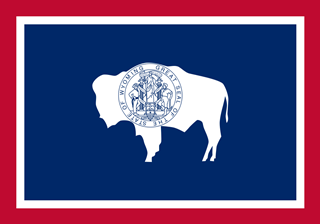 A libertarian group has filed a lawsuit in federal court to remove the state’s aggregate limit on political contributions. The Liberty Group, on behalf of Dan and Carleen Brophy, sued Secretary of State Max Maxfield claiming the state’s aggregate limit of $25,000 per two-year cycle unconstitutionally restricts free speech.
A libertarian group has filed a lawsuit in federal court to remove the state’s aggregate limit on political contributions. The Liberty Group, on behalf of Dan and Carleen Brophy, sued Secretary of State Max Maxfield claiming the state’s aggregate limit of $25,000 per two-year cycle unconstitutionally restricts free speech.
The state has declined to follow Maryland and Massachusetts in issuing orders not to enforce state law following the U.S. Supreme Court’s ruling in McCutcheon v. Federal Election Commission.
In June, a majority of the Joint Corporations, Appropriations, and Political Subdivisions Interim Committee voted to order staff to draft a bill repealing a new limit for PAC contributions as well as the existing aggregate limit.
July 28, 2014 •
Monday News Roundup
Lobbying “Bombshell: Ethics office alleges illegal lobbying” by Megan R. Wilson in The Hill. “Lobbying business in state of upheaval” by Megan R. Wilson in The Hill. “Wall Street spending $1.5M a day on lobbying, campaigns” by Benjamin Goad in […]
 Lobbying
Lobbying
“Bombshell: Ethics office alleges illegal lobbying” by Megan R. Wilson in The Hill.
“Lobbying business in state of upheaval” by Megan R. Wilson in The Hill.
“Wall Street spending $1.5M a day on lobbying, campaigns” by Benjamin Goad in The Hill.
“D.C. lobbying firms see revenue lift in first half of 2014” by Tucker Echols in Washington Business Journal.
“How Facebook Became One of the Biggest Power Players on K Street” by Tess VandenDolder in InTheCapital.
“U.S. lawmakers got cash from Alberta’s Keystone lobbyists” by Laurent Bastien Corbeil and Les Whittington in The Star.
Campaign Finance
“Outside Money Drives a Deluge of Political Ads” by Ashley Parker in The New York Times.
Alaska: “Marijuana legalization backers file campaign finance complaint against opposition group” by Laurel Andrews in the Alaska Dispatch News.
Arizona: “Scottsdale ruling: No campaign violation in mailers” by Beth Duckett in The Republic.
Maine: “Senate president’s PAC faces campaign finance fine” by The Associated Press in the Washington Times.
Massachusetts: “Officials appear to misuse Mass. campaign funds” by David Scharfenberg in The Boston Globe.
Nevada: “Former Nevada lobbyist fights order to report to federal prison amid campaign finance appeal” by The Associated Press in the Daily Journal.
West Virginia: “Election, ethics laws put agencies at odds” in the Charleston Daily Mail.
Ethics
Hawaii: “Disclosures won’t begin until 2015, ethics panel says” by The Associated Press in The Maui News.
Virginia: “Virginia Ex-Governor’s Defense to Rest on State Ethics” by Andrew Zajac and Peter Galuszka in Bloomberg.
Government Tech and Social Media
“Civic Tech and Engagement: Announcing a New Series on What Makes it ʹThickʹ” by Micah L. Sifry in TechPresident.
New York: “NYC Open Data Advocates Focus on Quality And Value Over Quantity” by Miranda Neubauer in TechPresident.
July 28, 2014 •
Ontario Legislature Adjourns for Summer
On July 24, the Ontario, Canada, Legislature adjourned its session with unanimous consent until October 20, 2014. According to The Record, legislators will continue to work over the summer to address budget issues. “Make no mistake, this is not an […]
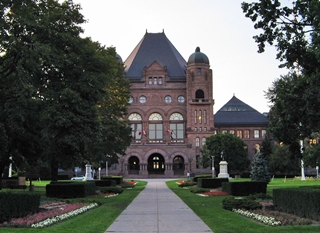 On July 24, the Ontario, Canada, Legislature adjourned its session with unanimous consent until October 20, 2014. According to The Record, legislators will continue to work over the summer to address budget issues. “Make no mistake, this is not an extended vacation that MPPs are going on, and certainly I will be working very hard over the coming weeks to prepare for all the implementation that comes with the passage of the budget,” said Premier Kathleen Wynne.
On July 24, the Ontario, Canada, Legislature adjourned its session with unanimous consent until October 20, 2014. According to The Record, legislators will continue to work over the summer to address budget issues. “Make no mistake, this is not an extended vacation that MPPs are going on, and certainly I will be working very hard over the coming weeks to prepare for all the implementation that comes with the passage of the budget,” said Premier Kathleen Wynne.
Photo of the Ontario Legislative Assembly Building by Antoien Cadotte in Wikimedia Commons.
The Hawaii State Ethics Commission voted Wednesday to withhold from the public all financial disclosure statements filed by public officials prior to July 8. The decision came in response to a new law expanding the list of financial disclosure statements […]
The Hawaii State Ethics Commission voted Wednesday to withhold from the public all financial disclosure statements filed by public officials prior to July 8. The decision came in response to a new law expanding the list of financial disclosure statements to be made publicly available.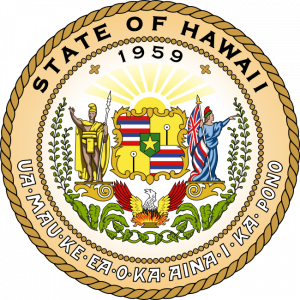
More than two dozen volunteer board members resigned since the bill’s passing, citing privacy concerns over the release of information regarding income, investments, real estate holdings, and business interests of members, their spouses, and their dependent children.
Les Kondo, executive director of the Ethics Commission, initially interpreted the law as requiring public disclosure of statements already on file. A state deputy attorney general recently found retroactive application of the law to be inappropriate; the financial information of those who resigned will remain confidential and active members’ statements will not be made public until filing again in 2015.
July 25, 2014 •
Howard County, Maryland Campaign Receives Charity Waiver
Maryland State Flag County Executive Ken Ulman gave to charity the $34,000 in campaign contributions he received from insurance executive Jeffrey B. Cohen, who was indicted last month on federal fraud charges. Cohen has been accused of misrepresenting the amount […]
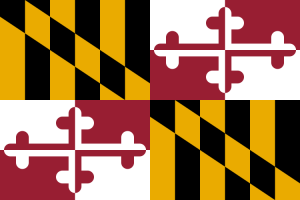 Maryland State Flag
Maryland State Flag
County Executive Ken Ulman gave to charity the $34,000 in campaign contributions he received from insurance executive Jeffrey B. Cohen, who was indicted last month on federal fraud charges. Cohen has been accused of misrepresenting the amount of cash his company had available to provide liability insurance to thousands of bars, restaurants, and strip clubs.
Although current Maryland election law requires political contributions to be used only for campaigns, the state Board of Elections issued a waiver. Ulman, who is Democrat Anthony Brown’s running mate for governor, donated Cohen’s contributions to the Maryland Crime Victims Network and the United Way of Central Maryland.
The Ethics Commission will consider adopting draft regulations related to the Lobbyist Ordinance at the next regular meeting on July 28, 2014. The drafts include preparation and research in the definition of “lobbyist services” and count a single conversation with […]
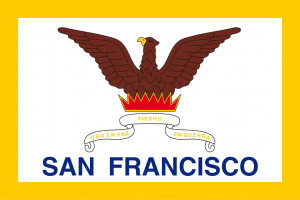 The Ethics Commission will consider adopting draft regulations related to the Lobbyist Ordinance at the next regular meeting on July 28, 2014. The drafts include preparation and research in the definition of “lobbyist services” and count a single conversation with multiple officials as multiple “contacts” for purposes of the new registration threshold.
The Ethics Commission will consider adopting draft regulations related to the Lobbyist Ordinance at the next regular meeting on July 28, 2014. The drafts include preparation and research in the definition of “lobbyist services” and count a single conversation with multiple officials as multiple “contacts” for purposes of the new registration threshold.
The new regulations are designed to interpret and otherwise provide guidance concerning recent amendments to the ordinance taking effect on July 26, 2014.
July 25, 2014 •
DE Governor Signs Package of Campaign Finance, Lobbying Bills
On July 22, 2014, Gov. Jack Markell signed several bills amending Delaware’s campaign finance and lobbying laws. Senate Bill 187 allows political committees to donate prohibited contributions to certain charitable organizations. House Bill 300 protects whistleblowers from employer retaliation […]
On July 22, 2014, Gov. Jack Markell signed several bills amending Delaware’s campaign finance and lobbying laws. Senate Bill 187 allows political committees to donate prohibited contributions to certain charitable organizations. House Bill 300 protects whistleblowers from employer retaliation for reporting campaign finance violations or participating in the investigation of such violations.
 Both Senate Bill 187 and House Bill 300 became effective upon the governor’s signature. House Bill 301 requires contributions given from a joint account, whether by check, debit card, or credit card, to be attributed to the signator of the contribution. Senate Bill 186 requires entities making contributions of more than $100 to disclose the name and address of one responsible party. A responsible party, as defined by the bill, is an individual who exercises control over the entity.
Both Senate Bill 187 and House Bill 300 became effective upon the governor’s signature. House Bill 301 requires contributions given from a joint account, whether by check, debit card, or credit card, to be attributed to the signator of the contribution. Senate Bill 186 requires entities making contributions of more than $100 to disclose the name and address of one responsible party. A responsible party, as defined by the bill, is an individual who exercises control over the entity.
House Bill 301 and Senate Bill 186 are effective January 1, 2015. Also effective January 1, 2015, is House Bill 306, which imposes late filing fees on lobbyists who file late reports. A fee of $25 will be assessed for the first day and $10 for each subsequent day a lobbyist report is delinquent. The maximum late fee allowable is $100. The Public Integrity Commission may waive such late filing fees if it determines circumstances make imposition of the fee inappropriate.
Of the newly minted legislation, Gov. Markell said, “We must always look to improve our laws to strengthen the public’s confidence in the political process.”
Photo of Governor Jack Markell by John D. (Jay) Rockefeller IV on Wikimedia Commons.
July 25, 2014 •
News You Can Use Digest – July 25, 2014
Federal: How to Disclose Your Lobbying While Keeping the Public in the Dark National Journal – Ben Geman | Published: 7/22/2014 Some companies’ and advocacy groups’ quarterly lobbying disclosure forms provide highly specific lists of bills and topics they are working […]

Federal:
How to Disclose Your Lobbying While Keeping the Public in the Dark
National Journal – Ben Geman | Published: 7/22/2014
Some companies’ and advocacy groups’ quarterly lobbying disclosure forms provide highly specific lists of bills and topics they are working on. But other lobbying reports deploy language so vague that they reveal almost no information at all, undermining the efficacy of federal laws aimed at keeping the public abreast of how insiders are lobbying their elected officials. The rules require quarterly reports that list both broad categories, such as energy or trade, and “specific lobbying issues” within those categories. It is the line in the reports asking for specifics – Line 16 – that is often left very vague.
Leadership War Stymies Senate Mission
Washington Post – Paul Kane | Published: 7/20/2014
The U.S. Senate has approved so few bills this year, and so little else has gotten done, that many senators say they are spending most of their time on insignificant and unrewarding work. Senators say that they increasingly feel like pawns caught between Majority Leader Harry Reid and Minority Leader Mitch McConnell, whose deep personal and political antagonisms have almost immobilized the chamber. The two men so distrust each other, and each is so determined to deny the other even the smallest political success, that their approach to running the Senate has been reduced to a campaign of mutually assured dysfunction.
Senator’s Thesis Turns Out to Be Remix of Others’ Works, Uncited
New York Times – Jonathan Martin | Published: 7/23/2014
U.S. Sen. John Walsh (D-Mont.), a decorated veteran of the Iraq war, has made his military service a main selling point on the campaign trail. Still wearing his hair close-cropped, he says his time in uniform informs his views on a range of issues. But one of the highest-profile credentials of Walsh’s 33-year military career appears to have been improperly attained. An examination of the final paper required for his master’s degree from the Army War College indicates the senator appropriated at least a quarter of his thesis on American Middle East policy from other authors’ works, with no attribution.
From the States and Municipalities:
California – Political Shakeup Looms in California
Politico – Alexander Burns | Published: 7/20/2014
For decades, Democrats and Republicans in California have experienced statewide politics as an interminable waiting game, thanks to a gang of 70- and 80-somethings from the San Francisco Bay Area who have dominated government for a generation. Rising stars in both parties have come and gone, but the state’s chief power players have remained the same. Yet the buildup of talent on the Democratic bench means it is only a matter of time before the state witnesses a genuine free-for-all among younger officeholders.
Delaware – Delaware Governor Signs Campaign Finance Reform Bills into Law
Newsworks.org – Shana O’Malley | Published: 7/22/2014
Delaware Gov. Jack Markell signed a package of campaign finance and ethics reform bills. Among the measures, Senate Bill 186 requires LLCs and corporations that donate more than $100 to disclose the name and address of one “responsible party” who exercises control over the entity. House Bill 306 will establish a fee for lobbyists who fail to file their quarterly expense reports in a timely manner.
Illinois – New Rauner Attack Ad Relies on Made-Up Headlines
Chicago Tribune – Rick Pearson | Published: 7/24/2014
Bruce Rauner’s latest attack ad against Illinois Gov. Pat Quinn relies, in part, on independent news stories but features headlines that Rauner’s campaign made up and doctored to make them sound more critical. The ad overlays what the Rauner campaign calls “headlines” over television screens. Some of the headlines are correct. But in two cases, the ad makes up headlines that did not appear with the source cited, and in at least three other cases, headlines were shortened to buttress the campaign’s attack on Quinn.
Massachusetts – Super PAC Disclosure Bill Clears Massachusetts Senate, Protects Higher Union Limit
MassLive.com – Colleen Quinn (State House News Service) | Published: 7/23/2014
The Massachusetts Senate approved legislation designed to tighten reporting requirements for independent political expenditures, including those made by super PACs. Under Senate Bill 2264, corporations, labor unions, and political committees would be required to file a campaign finance report within seven days of making an independent expenditure, or within 24 hours if the expenditure is made within 10 days of an election. The Senate bill, like a version of the measure approved by the House, also doubles the amount an individual could donate to a candidate in a calendar year from $500 to $1,000. Lawmakers will now try to agree on a compromise bill.
New Hampshire – Can N.H.’s New Campaign Finance Rules Hold up in Court?
New Hampshire Public Radio – Brian Wallstin | Published: 7/21/2014
A bill awaiting New Hampshire Gov. Maggie Hassan’s signature requires 501(c)4s and other politically active nonprofits to register with the secretary of state’s office and report its receipts and expenditures. As reforms go, Senate Bill 120 is relatively modest: it only applies to nonprofits that spend more than $5,000 a year, and it does not ask them to disclose the identity of individual donors. But the new rules, which could affect the role tax-exempt groups play in the 2014 elections, are almost certain to trigger a political tug of war that could wind up in court.
New York – Cuomo’s Office Hobbled State Ethics Inquiries
New York Times – Susanne Craig, William Rashbaum, and Thomas Kaplan | Published: 7/23/2014
The commission set up by New York Gov. Andrew Cuomo to root out public corruption was hobbled almost from the outset by demands from Cuomo’s office. An examination by The New York Times found the governor’s office deeply compromised the panel’s work, objecting whenever the commission focused on groups with ties to Cuomo or on issues that might reflect poorly on him. Cuomo abruptly disbanded the commission halfway through what he had indicated would be an 18-month life. Federal prosecutors are now investigating the roles of Cuomo and his aides in the panel’s shutdown and are pursuing its unfinished business.
New York – JCOPE Donor-Disclosure Exemption Rejections Are Overturned
Albany Times Union – Casey Seiler | Published: 7/18/2014
A judicial hearing officer reversed the Joint Commission on Public Ethics (JCOPE) and held that the New York Civil Liberties Union and three other advocacy groups do not have to reveal their financial backers because doing so could put their supporters at risk. The hearing officer, former Judge George Pratt, said the JCOPE majority opinion was “clearly erroneous” and each of the groups had provided sufficient evidence to warrant an exemption from an ethics rule requiring organizations to disclose their funding sources.
Pennsylvania – Former Traffic Court judges Cleared on Main Charge
Philadelphia Inquirer – Jeremy Roebuck | Published: 7/23/2014
Four ousted traffic court judges in Philadelphia have been convicted of lying to authorities but cleared of most charges in a sweeping ticket-fixing case. A fifth judge and a businessperson were acquitted. An indictment last year portrayed the now-abolished court as a pit of patronage and corruption. Nearly the entire bench was charged with fixing tickets, sometimes in exchange for gifts or favors. The traffic judges were not lawyers but earned about $90,000 annually. Defense lawyers argued that giving insiders “consideration” was long a tradition at traffic court, and not deemed illegal.
Texas – Activist Fined $10,000 for Not Registering as Lobbyist
Houston Chronicle – David Saleh Rauf (San Antonio Express-News) | Published: 7/21/2014
The Texas Ethics Commission ordered conservative activist Michael Quinn Sullivan to pay the maximum fine for not registering as a lobbyist. Sullivan, president of Empower Texans, has been the subject of an extended investigation by the commission stemming from complaints that he failed to register as a lobbyist while working to influence the fate of legislation and the election of a House speaker. Sullivan will appeal the ruling to a state District Court, and argue the commission’s lobbyist registration law is unconstitutional and its enforcement infringes on the First Amendment.
 State and Federal Communications produces a weekly summary of national news, offering more than 80 articles per week focused on ethics, lobbying, and campaign finance.
State and Federal Communications produces a weekly summary of national news, offering more than 80 articles per week focused on ethics, lobbying, and campaign finance.
News You Can Use is a news service provided at no charge only to clients of our online Executive Source Guides, or ALERTS™ consulting clients.
Under New York ethics regulations, a registered lobbyist, under certain circumstances, must report the names of each source of funding of more than $5,000 from a single source used to fund the lobbying activity reported and the amounts received from […]
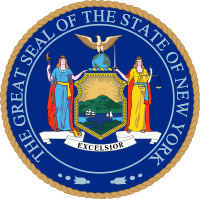 Under New York ethics regulations, a registered lobbyist, under certain circumstances, must report the names of each source of funding of more than $5,000 from a single source used to fund the lobbying activity reported and the amounts received from each identified source. The Joint Commission on Public Ethics (JCOPE) can grant an exemption to this disclosure requirement if such disclosure would put contributors at risk of harm, threats, harassment, or reprisals.
Under New York ethics regulations, a registered lobbyist, under certain circumstances, must report the names of each source of funding of more than $5,000 from a single source used to fund the lobbying activity reported and the amounts received from each identified source. The Joint Commission on Public Ethics (JCOPE) can grant an exemption to this disclosure requirement if such disclosure would put contributors at risk of harm, threats, harassment, or reprisals.
Recently, the JCOPE denied an exemption to Family Planning Advocates, the New York Women’s Equality Coalition, New Yorkers for Constitutional Freedoms, and the New York Civil Liberties Union. The groups appealed the ruling to an independent judicial hearing officer who must determine whether the denial of an exemption was clearly erroneous in view of the evidence of record.
On July 11, 2014, George C. Pratt, the presiding judicial hearing officer, reversed the JCOPE’s denial of the exemption, finding the commission’s decision to be clearly erroneous in light of the specific evidence presented. In his decision, Pratt stated the advocacy groups had experienced several incidents over a period of years showing a pattern of threats and manifestations of public hostility. As a result of Pratt’s ruling, all four groups will be granted an exemption from the donor disclosure requirement.
July 23, 2014 •
Elizabeth Bartz Speaking on Ethics in Elections at IACREOT
Elizabeth Bartz, president and CEO of State and Federal Communications, is speaking today at the International Association of Clerks, Recorders, Election Officials & Treasurers (IACREOT) Annual Conference in Bonita Springs, Florida. The event runs from July 19-24, 2014. Bartz is […]
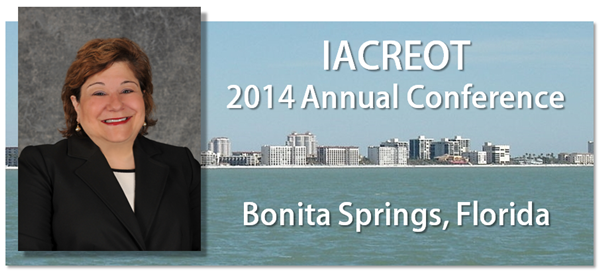
Elizabeth Bartz, president and CEO of State and Federal Communications, is speaking today at the International Association of Clerks, Recorders, Election Officials & Treasurers (IACREOT) Annual Conference in Bonita Springs, Florida. The event runs from July 19-24, 2014.
Bartz is presenting “Ethics in Elections: Challenges and Applications from a Compliance Perspective” at 3:00 p.m.
You can follow the Twitter conversations from the conference at #IACREOT.
July 23, 2014 •
Wednesday Government Relations News
Lobbying “Lobbying World” in The Hill. “K Street market dims for Democrats” by Byron Tau in Politico. “Ex-Rep. Howard Berman lobbying for Hollywood” by Julian Hattem in The Hill. “Former WH liaison to Congress joins law firm” by Megan R. […]
 Lobbying
Lobbying
“Lobbying World” in The Hill.
“K Street market dims for Democrats” by Byron Tau in Politico.
“Ex-Rep. Howard Berman lobbying for Hollywood” by Julian Hattem in The Hill.
“Former WH liaison to Congress joins law firm” by Megan R. Wilson in The Hill.
Campaign Finance
“Chamber spending tops $40M as election nears” by Megan R. Wilson in The Hill.
Delaware: “Markell signs reform bill all say is a half-loaf” by Jonathan Starkey in The News Journal.
Ethics
Florida: “Ethics, election complaints now a campaign weapon” by Mike Vasilinda on WJXT News.
Hawaii: “One-Third of Hawaii Candidates Missed Financial Disclosure Deadline” by Chad Blair in the Honolulu Civil Beat.
New York: “NY ethics panel blacks out officials’ public service announcements to remove campaign edge” by The Associated Press in the Daily Journal.
New York: “Cuomo’s Office Hobbled State Ethics Inquiries” by Susanne Craig, William K. Rashbaum and Thomas Kaplan in The New York Times.
Pennsylvania: “Ethics agency probes lawmakers” by The Associated Press in The Indiana Gazette.
Elections
“Study: Record-low turnouts seen in some primaries” by The Associated Press in Politico.
Government Tech and Social Media
“When Is a Tweet an Ethics Violation? | A Question of Ethics” by C. Simon Davidson in Roll Call.
“Social Advocacy & Politics: Organize Your Colleagues First” by Alan Rosenblatt in Social Media Today.
“Did the White House Website Violate Its Own Privacy Rules?” by Brendan Sasso in Nextgov.
“House GOP makes digital push” by Daniel Samuelsohn in Politico.
Kentucky: “Kentucky Registry of Election Finance Launches Redesigned Website” press release in The Wall Street Journal’s Market Watch.
July 23, 2014 •
Georgia Purdue Will Face Nunn in November
David Perdue has won the Republican runoff primary for Senate by edging past Rep. Jack Kingston with less than 51 percent of the vote. Purdue, a businessman and nephew of the popular former Gov. Sonny Perdue, will face Democrat Michelle […]
 David Perdue has won the Republican runoff primary for Senate by edging past Rep. Jack Kingston with less than 51 percent of the vote.
David Perdue has won the Republican runoff primary for Senate by edging past Rep. Jack Kingston with less than 51 percent of the vote.
Purdue, a businessman and nephew of the popular former Gov. Sonny Perdue, will face Democrat Michelle Nunn in the November general election to fill the seat of retiring Republican Sen. Saxby Chambliss.
Neither Nunn nor Perdue has ever been elected to public office.
Today Texas Gov. Perry announced a special election will be held September 9, 2014, for the State Senate District 28 seat. State Sen. Robert Duncan resigned on July 3, 2014, in order to serve as chancellor of the Texas Tech […]
 Today Texas Gov. Perry announced a special election will be held September 9, 2014, for the State Senate District 28 seat.
Today Texas Gov. Perry announced a special election will be held September 9, 2014, for the State Senate District 28 seat.
State Sen. Robert Duncan resigned on July 3, 2014, in order to serve as chancellor of the Texas Tech University System. The winner of the election will serve out the unexpired term of Duncan, which expires in 2017.
Duncan has served in both the state House and the Senate since 1993.
City Council has approved a proposal by Councilmember Dan Kalb to amend the Oakland City Charter to strengthen the authority, resources, and independence of the Public Ethics Commission. The amendment would expand the authority of the commission by transferring filing […]
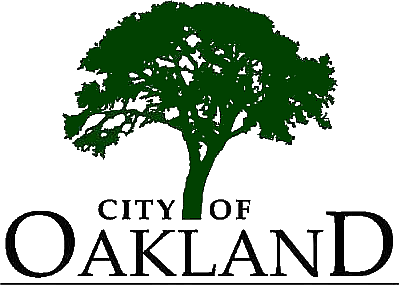 City Council has approved a proposal by Councilmember Dan Kalb to amend the Oakland City Charter to strengthen the authority, resources, and independence of the Public Ethics Commission.
City Council has approved a proposal by Councilmember Dan Kalb to amend the Oakland City Charter to strengthen the authority, resources, and independence of the Public Ethics Commission.
The amendment would expand the authority of the commission by transferring filing officer duties from the city clerk for lobbying and campaign finance reporting. The seven-member commission would also be given the authority to enforce state ethics laws by imposing fines when four members agree by vote.
The amendment will now be placed on the November 2014 ballot.
State and Federal Communications, Inc. provides research and consulting services for government relations professionals on lobbying laws, procurement lobbying laws, political contribution laws in the United States and Canada. Learn more by visiting stateandfed.com.


